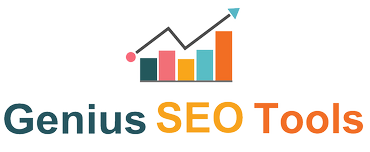Hey! Welcome back to our blog series on keyword research! If you haven’t yet read our previous installments, it’s important you do so or else you’ll be missing some crucial information and advice! Click on the following links to complete your education:
Part 1: What is Keyword research?
Part 2: How search volume and competition can help you get ranked?
Part 3: KEI: Keyword efficiency Index and how it can help you rank.
Part 4: How to do keyword research using Google?
Part 5: How does google keyword planner work?
Part 6: 4 Ways Google’s Adword planner could be harming you.
What are the keyword research metrics I should be looking for?
The keyword metrics that are measured and reported on vary depending on the analytics program or tool that you use. Most will provide statistics and valuable insights into the parameters listed below, but just make sure that you understand what these mean and how they are reported on before acting upon it. Keyword research is not that pesky household appliance you try to work without reading the instructions first: it can cost you a lot of money and potential business to invest in the wrong keyword list!
Average Monthly Search Volume
The average number of times people have searched for the exact keyword or phrase based on the search network targeting and location you’ve selected. The numbers shown to you are averages for a 12-month period. The more a keyword is searched for, the greater its potential to be quite useful is, but your choice absolutely needs to take other factors into consideration such as competition…
Competition
The competition is a measure of the number of advertisers that showed up for each keyword relative to all keywords across Google. In other words, it answers the question: how many other businesses are targeting and bidding for these keywords in their advertising campaign? Again, this information is specific to your chosen search network targeting and location. Keywords that have a high average monthly search volume, but a low competition are the ideal choice.
Keyword Difficulty (KEI)
The keyword difficulty or KEI is really a measure of how tricky it’ll be to get a website ranking for a particular keyword or phrase. This is typically calculated by taking into account which pages and domains those keywords are ranking for and how much authority those sources carry. If the pages and domains you’re going up against are very powerful and well “liked” by Google, getting your own site to rank for those keywords could prove to be too difficult and a total waste of your time and money. Sometimes, discretion is the better part of valour and you’re better off channelling your efforts elsewhere.
Here’s a really relevant article you should take a look at when making use of free keyword research tools, such as Adword Planner: Why You Can’t Bank On Google’s Keyword Planner Tool. Author Darren DeMatas, who has an MBA in Internet Marketing and certification in Copyblogger Content Marketing and Google AdWords, also delves into issues of competition and difficulty that play a big role in the pursuit of the ultimate list of SEO keywords:
“I use the Google Keyword Planner tool every day. It’s free. You can’t bank on free. Spend a little cash on a keyword difficulty tool. Set aside a small AdWords budget to help find long tail keywords that convert. You can’t afford to chase the wrong keywords with PPC or SEO.”
Darren DeMatas: Follow him on Google+, Twitter and LinkedIn.
Keyword Opportunity
Organic search results are preceded by ads and – in many instances – by an instant answer box, which pretty much negates the need for the user to click on any website for answers. So, even though a page might rank # 1 for a certain keyword on the organic search results yielded by Google, it’s not the first item web users see! It could be the second or even fourth or fifth. “Opportunity” provides a measure of the actual click-through rate a page is going to experience given it’s position on the search results page.
It’s a good idea to run a search query of every keyword and phrase you’re considering, not only to determine what ads you’re competing with, but also what kind of content these pages are featuring so that you know how to compete.
Average Cost-Per-Click
Are other advertisers forking out a lot of money to rank for the keywords you’ve selected? Can you afford to invest in those keywords and give your site a good shot at ranking for them, or would you get drowned out by the competition? In other words: are your chosen keywords WORTH ranking for?
The average cost per click in Google AdWords is between $1 and $2 on the search network, but there are some giant corporations that fork out as much as $50 per click in order to rank highly for a particular keyword or phrase!
And Now? We’ve just discussed five key metrics here, but in reality there are countless more, many of which are variations of the above. It’ll be your job to thoroughly investigate the metrics your particular keyword research tool offers up so that you understand and put to good use the valuable information they’re providing you.
Want to learn more? Click Here to check out our Ultimate Guide To Keyword Research – it’s FREE and contains the A-Z of advice on putting together a killer list of keywords that’ll drive unprecedented volumes of traffic to your website..
